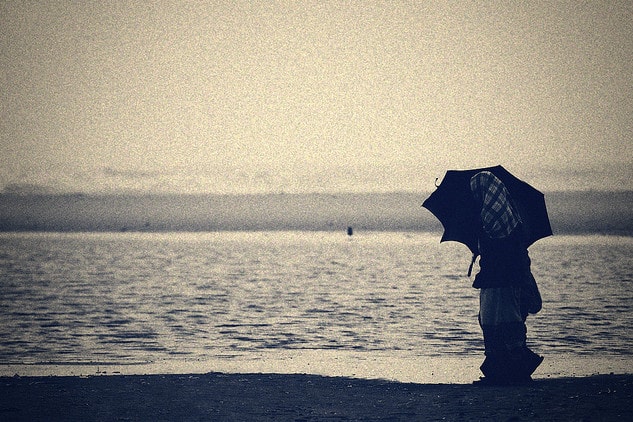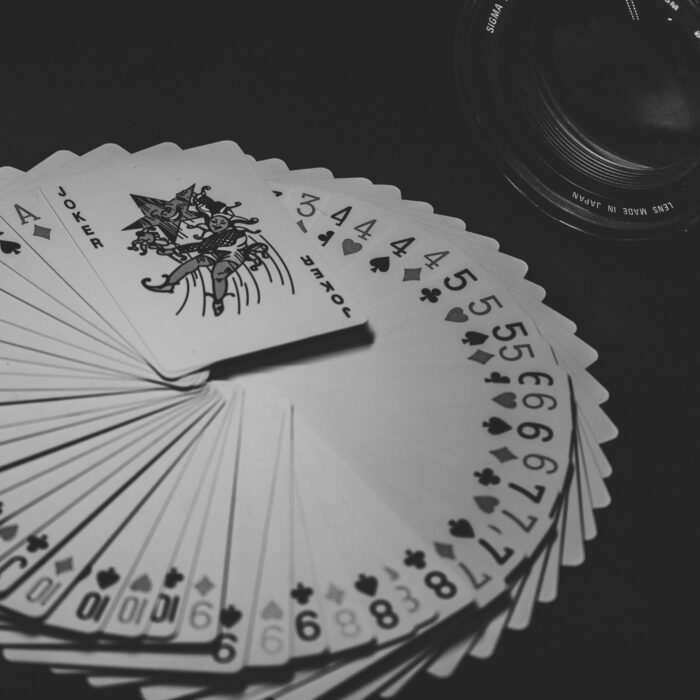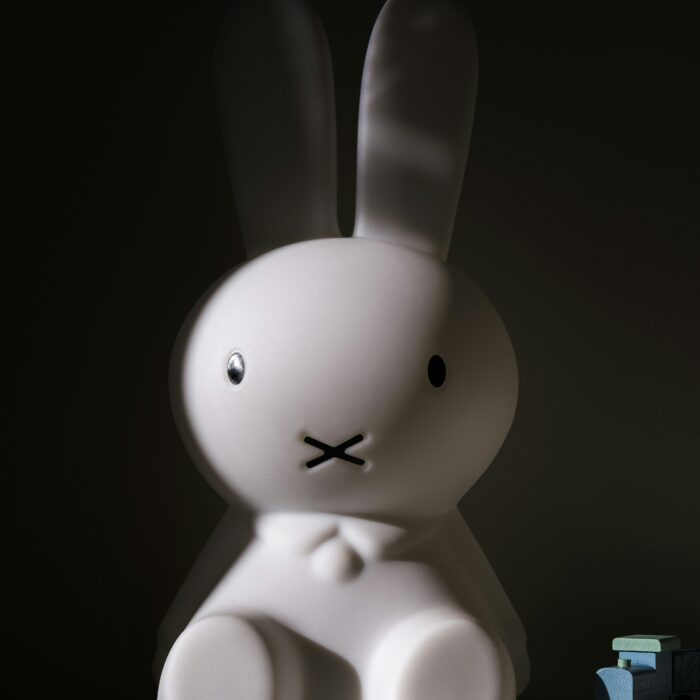You have no items in your cart. Want to get some nice things?
Go shopping 
The red umbrella is a symbol of my menarche and a beacon to the unwed men in the village. The wooden handle, curved like a fish hook, is burnished with the nervous sweat of many girls. It is the last thing I will touch as a child.
My friends and family are here. With them are people I know only by sight and some from other villages I do not know at all. I am standing in the ocean and the wind is trying to claim the umbrella for its own. This could be a dream if it wasn’t for the frigid water numbing my feet. I don’t mind the cold, but to splash the red umbrella will bring bad luck to my children.
The Oba places a spidery hand on my shoulder, hisses in my ear, “Do not drop it, girl,” and turns to the crowd. “Yemoja has been blessed with her first blood this day,” he says. “Walk away from us a girl. When the water has cleansed your body, return to us a woman.”
I stride deeper into the water. The seabed is strewn with smooth rocks that crackle and shift as I step on them. Fingers of weed grab at my ankles and squirm between my toes. The swell is pushing against my legs, splashing bitter kisses against my skin. I must keep the umbrella high enough to avoid the water but that offers it up to the wind and the wind threatens to pull me over.
***
This morning, when I awoke, my stomach felt strange and my legs sticky. I pulled back the sheet and gasped when I saw red on white. Mother rushed in to check I was well. She saw the stain, took my hand and said, “Don’t look so worried, today is a good day. I’ll go and tell the Oba.”
“Please, Mama, can we not wait till my next one?” I said.
Mother shook her head, said sorry with her eyes, and ran from the house. She returned seconds later, not because she had changed her mind, but to tell me to put on my best dress.
I have only one dress so it is also true that it is my worst dress. It was made by my mother’s mother many years ago. I took off my night clothes and looked at myself in the mirror; a child stared back at me. Today I would become a woman, but my angular body and blemished forehead betrayed my age. I pulled the dress over my head, careful not to tear the decrepit cloth, and sat down to brush my hair.
Too soon, voices entered the house as Mother returned with the Oba. My eye caught the small wooden fish on the dressing table marooned amongst bobbles and bangles. I picked it up and clenched it in my hand, taking comfort from its smooth, familiar shape. The Oba walked past me to the bed, inspected the sheet and nodded his head, satisfied. He led me outside and handed me the red umbrella. Word had spread and the villagers were already gathering on the shore.
***
Sunbola was the first of my friends to be cleansed. She was the most beautiful girl in the village. Her parents spoke with pride of how they could live out the rest of their life on the bride price she was sure to fetch. Her lustrous skin was black as fine polished ebony, darkened further by the elegant white dress bought in the city. The village was so full that day it was like half the city had followed her back for the bidding.
I watched her step into the water, shaking her hips, taking her time, looking back at the men and sending them wild. Men shouted sums of money unheard of in our village. Sunbola’s father rasped his calloused hands together and pulled his wife close.
And still I watched as my sinful wish came true and she stumbled on the rocks and plunged into the water. All was silent until she surfaced, splashing and spluttering, the red umbrella forgotten and floating away.
Her parents broke down on the shore and the crowd turned away so as not to be tainted by her shame. The men returned their money to their pockets and went home wifeless but unsullied. Mother dragged me away, but I watched over my shoulder as the Oba waded out into the water, retrieved the red umbrella and jabbed Sunbola with the metal tip.
The grown-ups never spoke of her again after that day. At school her name became an insult. One girl whispered she had seen her in the next village peddling home-made trinkets and begging for scraps. I made an excuse to visit the village to see for myself. There she was sitting on the dusty ground, her wares spread in front of her on a tatty goatskin. I watched her from the other side of the market, catching glimpses of her lowered head between the legs of shoppers as they moved between the fish stalls and spice baskets.
My attention was caught by a tug at my skirt. I looked down and saw Juba, the handless beggar who travelled the villages with his one-pitch whistle.
“Alms, little girl?” he said.
I tore off a hunk of bread from the loaf I had bought. He took it between his stumps and chewed it with disorderly teeth. When I returned my gaze to Sunbola, she was looking straight at me. I wanted to go to her, to give her the rest of the loaf, to ask if there was something I could do to help. Instead, I put the loaf in my bag, bid Juba farewell and began walking back to my village. Someone behind me called my name, but I did not turn around.
***
My dress, shapeless and drab when dry, clings to my legs and caresses the cleft between thigh and rump. The fabric has become transparent. Perhaps my mother’s mother knew what she was about.
I risk a glance behind me at the shore. The men are jostling each other for the best vantage, the better to see my shape described by the sodden dress; the better to decide if I am worth trading for their possessions.
Mother has her hands clasped together at her chest. She nods and urges me on. To her left is the Oba, his slit eyes watching for the smallest drop of water landing on the red umbrella. To her right is a space where my father should be, ready to conduct the bidding. The Oba will perform the duties in his absence. Already the men are whispering in his ear, promising him a share of their catch or a portion of the bride price or even a night with their new bride. Father would have conducted a fair bidding. He would not have married me to a rough man, drunk or idler no matter how much money was offered. The Oba will marry me to whoever pays him the biggest bribe.
***
Father gave me a present for my seventh birthday, half a lifetime ago. It was early and I was alone in the house sweeping the floors. Father had not yet returned from the morning’s fishing and Mother was in the market haggling for plantains. I had no cares but for the state of the floors and I was happy. When a shadow appeared in the doorway, I turned to see Father hanging two rainbow fish under the eaves ready to be cleaned and gutted.
“What day is today?” he said.
“It is Tuesday, Papa, why do you ask such silly questions?”
“It is not just Tuesday, it is a special day, it is Yemoja’s day.”
He came into the hut and picked me up, squeezed me tight and covered my face with bristly kisses.
“Stop it, Papa, you are still wet from the sea. I have no time for this, I have work to do.”
“A girl that does not have time for a kiss from her father on her birthday has too much work.”
He handed me a parcel wrapped sloppily in paper. I rested the broom against the wall and tore open the parcel. A wooden fish tumbled out from the wrappings. It was carved from a piece of driftwood, scales and eyes scorched on with a hot tool.
“Do you not see, Yemoja? A wooden fish? Such a thing is not possible.”
“Yes, Papa,” I said. I put the fish down on the table and picked up my broom, thinking myself too old and important for childish toys.
Father sighed and said, “On matters of childhood, only children are expert,” and went outside to prepare the catch.
Later, I went to the shore where Father sat looking out across the water, his hands still bloody from gutting the fish.
“Thank you for my present, Papa,” I said. He smiled at me with teeth more black than white and hugged me and picked me up, threw me over his shoulder and waded out into the warm summer waters. He threw me in and I panicked and said, “Papa, I’m drowning.”
“Put your feet down, Yemoja, the water is shallow here.”
I put my feet on the bottom and snorted water from my nose.
“Papa, you nearly drowned me.”
“Drowned? No, Yemoja,” he said, serious now. “Drowning is not like this. Drowning is panic, and flopping like a fish on the sand and promising the gods your soul if only you could take one more breath. I have seen men drown and it is not like this.”
Father taught me to swim that day. How to keep my hands closed like a cup, not open like the tip of an eagle’s wing, and how to breathe from the side of my mouth. Father was a strong swimmer. Absurd then that he should have drowned in this very water, tangled in a snagged fishing net he was trying to free.
***
There are ships in the distance. Great floating islands of metal travelling between places I will never go. Could I swim out to them? Cast the umbrella aside and stroke my way to a different future? Or sink under the water and stay there until I need not make a decision and join my father’s spirit on the ocean floor?
But isn’t this umbrella handle also impregnated with my mother’s sweat? And did she not wear this same dress at her cleansing? She was no beauty and was not guaranteed the attention of the rich men. It was a poor man like my father who scraped together enough coin to win the bidding. They had a good life together until he was taken by this cruel water. “Poor men make the best husbands,” Father always joked. “You know other women won’t be looking at them.” But with poorness comes desperation and many girls are not so lucky in their husbands.
I wade out to the required depth, letting the water swirl between my legs and higher. Mother is calling me back to the shore for the bidding. The men are jeering and whistling and yelling things I don’t understand. I open my hand and look down at the wooden fish my father carved for my seventh birthday, half a lifetime ago. I lower it into the water and watch it rise and fall as it floats away on the waves.

About David Borrowdale
David Borrowdale trained in genetics before he realized he preferred manipulating words to DNA. Now he is part of the editorial team of a major scientific publisher. When not grappling with the minutiae of biology textbooks, he writes flash fiction and short stories and runs the Reflex Fiction flash fiction competition. His writing has been published in Five Hundred Words of Magic: A Flash Anthology and the charity anthology Flashdogs Vol II: Solstice. He lives in Oxford.





One comment